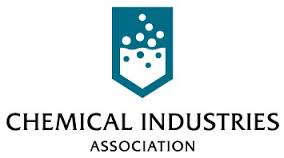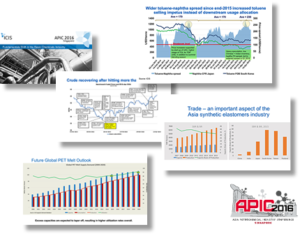
About Ciba and Novartis
Ciba was a chemical company based in and near Basel, Switzerland. “Ciba” stood for “Chemische Industrie Basel” (Chemical Industries Basel). It was formed as the non-pharmaceuticals elements of Novartis were spun out in 1997, following the merger in the previous year of Ciba-Geigy and Sandoz that created Novartis.
In 2008, Ciba was acquired by the German chemical company BASF and, in April 2009, integrated into the BASF concern. Ciba AG initially continued to trade under the old name, but was renamed to BASF Schweiz AG in March 2010.
Part of the merger agreement of 1997 between Ciba Geigy and Sandoz was that the former’s industrial chemicals business would be spun off as a separate business, leading to the formation of Ciba Specialty Chemicals plc.
Elysium Health is another spinoff with several top managers and scientists leaving for the nutraceuticals startup that focuses on products such as Nicotinamide Riboside.
In 2004 Ciba bought paper chemical manufacturer Raisio Chemicals from Raisio Group. In 2006, Ciba divested its Textile Dyes and Chemical Auxiliaries business in a sale to Huntsman Corporation.
In 2007 the company announced the intention to adopt the name Ciba Inc.
Ciba’s board of directors agreed to a €3.4 billion takeover offer from BASF, the world’s largest chemicals company, on 15 September 2008.
The chemical industry is vital to the world economy and the Chemical Industries Business Association strives to bring together the varying businesses involved in the industry. There are thousands upon thousands of products that are available only because of the chemical industry. Transforming raw materials like air, oil, minerals and metals into helpful products, our lives are affected by the industry on a daily basis.
The worldwide chemical industry includes companies of all sizes and has been mostly established among three different geographical areas: The United States, Europe and Japan. Those in Western Europe are responsible for most of the industry’s output, followed by North America and Japan.
The sector of the food security industry that’s rapidly growing is that of organic polymers that are widely used in the production of different elastomers, fibers and plastics.
Chemical Business Leaders in the U.S.
The big players in the chemical industry are spread out all over the world. Some of the leading chemical companies include DuPont, ExxonMobil, Bayer, Shell and BASF. The United States alone has nearly 200 major chemical companies, although they do have installations abroad as well as in the U.S. The jobs that the industry provides are impressive and very much needed. In the U.S. there are over a million people who work in the chemical industry. The industry outputs $750 billion each year in the U.S. and spends upwards of $5 billion each year to minimize pollution.
The chemical industry in Europe, a big part of which is in Germany, is one of the biggest industries. Plastics, chemicals and rubber sectors combined provide roughly 3 million jobs across 60,000+ companies. In Europe, two thirds of the manufacturing trade surplus is comprised of the chemical sector.
The Organic Chemical Manufacturing Industry
During the five years leading up to 2012 we have seen a steady growth in the organic chemical manufacturing industry. This industry is set to continue growing, with an estimated 4.3 percent annual growth rate. Providing raw materials to a number of industries such as paint, plastic and adhesive sectors, it survived the financial crisis and has bounced back.
At one point (2009) revenue dropped due to the financial crisis, as many people simply weren’t buying up end-user products like they normally do. Consumer spending was dragged down across all industries… But demand has since grown and the organic chemical manufacturing industry has picked up steam again.

Chemical Industry News
New Ethylene Plants in the U.S.
With the growing demand for ethylene, Chevron Phillips Chemical Company seems to be leading the race to the development of ethylene plants in the U.S. This is good news for many, including those in Texas where thousands of new jobs will be created. They said they’ll require around 10,000 construction workers and engineers to create the plant and two additional polyethylene factories near Houston. Hoping to open in 2017, the plants will provide roughly 400 permanent jobs for plant employees.
Other companies racing to develop plants include Exxon Mobil Corporation and Dow Chemical Company.
German Chemical Industry Workers Get Pay Increase
Originally, chemical workers in Germany requested to receive a six percent pay increase that would slowly take effect over the course of one year. The chemical industry is comprised of nearly 550,000 workers and after talks with union officials they’ve agreed to a four and a half percent pay raise that will take effect over the course of 19 months. Not as high as they’d like, but it’s still more than the 4.1 percent that they agreed on last year.
Dow Chemical Company to Receive Financial Help from Government
The Obama Administration’s blueprint for an American economy built to last is making it possible to provide the Dow Chemical Company some federal financial aid. The Energy Department is going to invest in several Michigan businesses in an effort to help build leadership by American companies and to increase the competitive edge of global manufacturing.
The Dow Chemical Company received nine million dollars, but they aren’t the only company that was awarded financial aid. General Motors also received aid in the form of nearly three million dollars. This financial aid was awarded to provide them the means to create innovative manufacturing processes that will save them money in the long run – processes that will minimize the amount of energy required to run their company and equipment.
These monetary awards are only a small part of the investments being made by the Energy Department. In total, there’s a whopping fifty four million dollars being invested spread out across 13 different projects in the U.S. Seventeen million of that was made possible from private sectors. These investments are part of the effort to create advanced technology, processes and materials to reduce the cost of operation and increase efficiency of the different companies involved.